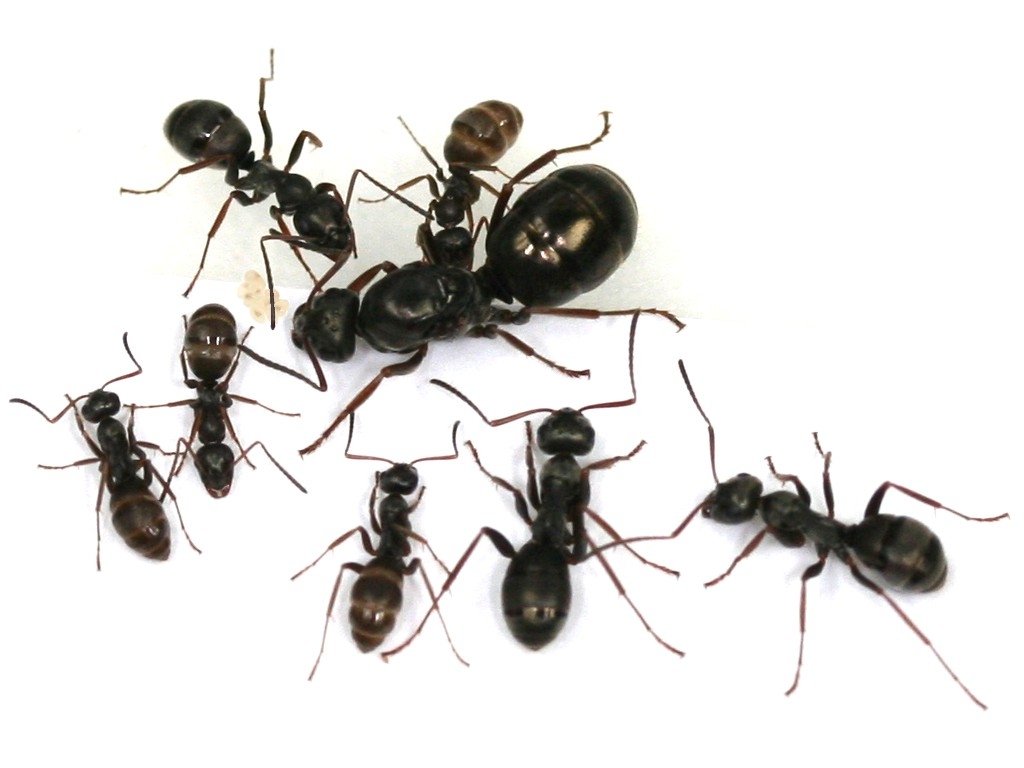Hey, what would be some good starter ants that I could keep without having to make a natural formicarium. One that is slightly big, and grows fast to moderately. I live in Florida.
Thanks!
Edited by Doonasaur, December 14 2017 - 6:10 PM.

Hey, what would be some good starter ants that I could keep without having to make a natural formicarium. One that is slightly big, and grows fast to moderately. I live in Florida.
Thanks!
Edited by Doonasaur, December 14 2017 - 6:10 PM.
Proverbs 6:6-8 New International Version (NIV)
6 Go to the ant, you sluggard;
consider its ways and be wise!
7 It has no commander,
no overseer or ruler,
8 yet it stores its provisions in summer
and gathers its food at harvest.
Camponotus sp. are pretty good to start with. They are typically large and have a large degree of polymorphism, but they do grow slow-moderately depending on conditions.
Founding:
Camponotus Pennsylvanicus x4
Camponotus Chromaiodes x4
Camponotus Nearcticus x9
Camponotus Snellingi x1
Tapinoma Sessile x1
we would need to know where you live for the best subjection
I started off with crematogster.
-1x Parasitic Formica Sp. Colony
-1x Pogonomymrex Californicus Colony
-1x Camponotus Hyatti Colony
I suggest pheidole. Highly polymorphic and some are polygynous.


Edited by drtrmiller, December 14 2017 - 9:13 PM.
Edited by Ant_Dude2908, December 14 2017 - 9:39 PM.
My Main Journal | My Neivamyrmex Journal | My Ant Adoption | My YouTube
Join the TennesseeAnts Discord Server! https://discord.gg/JbKwPgs
Then are Camponotus spp. still polymorphic? Or are they dimorphic?
camponotus are truly polymorphic. they have minor, median and major/super major workers.
My Main Journal | My Neivamyrmex Journal | My Ant Adoption | My YouTube
Join the TennesseeAnts Discord Server! https://discord.gg/JbKwPgs


Edited by Serafine, December 16 2017 - 2:36 PM.
We should respect all forms of consciousness. The body is just a vessel, a mere hull.
Welcome to Lazy Tube - My Camponotus Journal
My Main Journal | My Neivamyrmex Journal | My Ant Adoption | My YouTube
Join the TennesseeAnts Discord Server! https://discord.gg/JbKwPgs
Formica fusca are polymorphic?
Yes they are (as can be seen in that second picture above) but far less than Camponotus (also far less than for example Formica rufa).
We should respect all forms of consciousness. The body is just a vessel, a mere hull.
Welcome to Lazy Tube - My Camponotus Journal
Proverbs 6:6-8 New International Version (NIV)
6 Go to the ant, you sluggard;
consider its ways and be wise!
7 It has no commander,
no overseer or ruler,
8 yet it stores its provisions in summer
and gathers its food at harvest.
My Main Journal | My Neivamyrmex Journal | My Ant Adoption | My YouTube
Join the TennesseeAnts Discord Server! https://discord.gg/JbKwPgs
0 members, 1 guests, 0 anonymous users